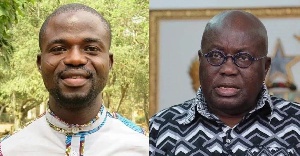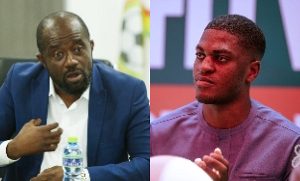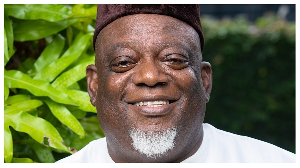Outspoken journalist, Manasseh Azure Awuni, has published one of his thought-provoking critiques, taking on President Nana Addo Dankwa Akufo-Addo for describing a section of Ghanaians as “Jeremiahs and naysayers.”
The biblical prophet, Jeremiah, also called “Weeping Prophet” was known for his lamentations and various expressions of sadness over issues.
The President used this term “Jeremiahs and naysayers" in reference to cynics and a section of the public who seems to lament over every policy his government rolls out.
During his 15th national update on the coronavirus pandemic, Nana Akufo-Addo said, "the professional Jeremiahs and naysayers who seek cynically to make a profitable industry out of spreading falsehoods fear and panic-stoking divisive ethnic sentiments underestimate the resolve and the determination of Ghanaians to build a united democratic peaceful and happy Ghana; we will continue to work hard to prove them wrong."
The President made the comment to discourage tribal sentiments that became topical during the compilation of the electoral roll and the deployment of military men to border towns.
However, in Manasseh’s write-up, published on his Facebook wall, he seems to remind the President that nobody is born a "naysayer".
“Of course, there are those who become naysayers by choice and for political capital. Those of us who were in this country in 2016 still remember the leader of the professional naysayers at the time, the commander-in-chief of Samballat and Tobiah’s army of self-seeking cynics,” he writes.
He admonished that politicians whose leadership has forced the most ardent of optimists to part ways with hope should be measured in their accusations and name-calling.
Read Manasseh’s full post below.
Dear critic and cynic with conviction, consider it praiseworthy when the cathedral builder who appointed more ministers than twice the number of ventilators in all the hospitals of our country calls you a naysayer. Count yourself on the right side of history when the so-called anti-corruption crusader who chased Daniel Domelevo out of office calls you a professional Jeremiah.
Nobody is born a naysayer. Of course, there are those who become naysayers by choice and for political capital. Those of us who were in this country in 2016 still remember the leader of the professional naysayers at the time, the commander-in-chief of Samballat and Tobiah’s army of self-seeking cynics.
We still remember those who told us that Ghanaians were sitting on wealth but were very hungry. The Ghana that was “extremely miserable” yesterday cannot become paradise overnight because the one who said it was miserable yesterday is in power today.
Yesterday’s political cynics and today’s political cynics have only traded places, and the former are dutifully observing table manners. Nothing has changed.
But we cannot hold it against those who are tarrying everybody complaining with the same brush of cynicism. Such people are beneficiaries of the virtuous circle of privilege. Those whining about the vicious cycle of poverty sound funny.
The privileged may have seen poverty, but they are yet to feel it. Now that the royal banquet is set before them, and they are surrounded by courtiers of praise-singers whose mastery of superlatives is unmatched, they cannot understand why you claim you’re hungry. So we should not hold anything against them. It’s not their fault.
We can only appeal to them to consider the fact that not all cynics are complaining out of political expediency.
There are others who are compelled to be naysayers. Being a naysayer, and not a praise-singer, in a retrogressive and badly run country is an act of patriotism.
And those whose leadership has forced the most ardent of optimists to part ways with hope should be measured in their accusations and name calling.
This is a plea from someone who has been tasked to be a citizen, and not a spectator.
General News of Monday, 17 August 2020
Source: www.ghanaweb.com

















